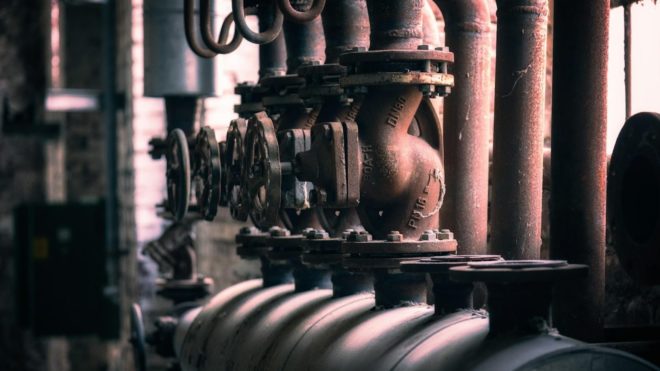Boilers are the unsung heroes of our homes, quietly working to provide us with heating and hot water. However, when a boiler breaks down, it can lead to a cascade of problems, especially in the colder months.
Preventative maintenance is key to ensuring your boiler remains in good working order. In this blog post, we will explore essential tips to prevent boiler breakdowns, saving you time, money, and the discomfort of a cold home.
Choose the Right Boiler Insurance
Boiler insurance provides valuable protection and peace of mind for homeowners, offering coverage for unexpected breakdowns, repairs, and maintenance costs associated with their heating systems. With boiler insurance in place, homeowners can avoid the financial burden of expensive repairs or replacements, as the policy typically covers parts, labour, and call-out fees, experts from Boiler Cover UK explain.
This coverage extends beyond standard warranties, providing comprehensive protection against a range of issues that may arise due to wear and tear, mechanical failures, or component malfunctions. In addition to financial benefits, boiler insurance often includes access to qualified engineers and 24/7 emergency helplines, ensuring prompt and reliable assistance in case of a breakdown.
By investing in boiler insurance, homeowners can safeguard their heating systems, minimize disruptions to their daily lives, and enjoy the comfort and reliability of a well-maintained boiler throughout the year.
Choose a Qualified Engineer
Always hire a certified Gas Safe registered engineer for servicing and repairs. This certification ensures that the engineer is qualified to work safely and legally on gas appliances.
Bleed Your Radiators
Over time, air can become trapped in your radiators, causing them to heat unevenly and reducing the efficiency of your heating system. Bleeding your radiators releases this trapped air, allowing hot water to circulate more effectively. Here’s how to bleed a radiator:
Turn off your heating: This prevents hot water from circulating and makes it safer to handle.
Find the bleed valve: This is usually at the top of the radiator.
Use a radiator key: Turn the valve counterclockwise until you hear a hissing sound (the air escaping).
Close the valve: Once water starts to trickle out, close the valve by turning it clockwise.
Check the boiler pressure: Bleeding radiators can cause a drop in boiler pressure, so make sure it’s within the recommended range (usually between 1 and 2 bar).
Monitor Boiler Pressure
Boilers require a certain amount of pressure to function correctly. If the pressure is too low or too high, it can lead to inefficiency or even a breakdown. Regularly check the pressure gauge on your boiler.
If the pressure is outside the recommended range, refer to your boiler’s manual or consult a professional to adjust it.
Repressurizing Your Boiler
If your boiler pressure is too low, you may need to repressurize it. This usually involves opening a valve (or two) on your boiler to allow more water into the system. Always follow the manufacturer’s instructions carefully, as incorrect pressure can damage the system.
Keep the System Clean
Debris and sludge can build up in your boiler and radiators over time, reducing efficiency and increasing the risk of breakdowns. There are a few ways to keep your system clean:
Use a Magnetic Filter
A magnetic filter can capture metal debris before it circulates through your system, preventing blockages and damage to your boiler. These filters are typically installed by a professional and should be cleaned annually during your boiler service.
Power Flushing
Power flushing is a deep-cleaning process that involves pumping a chemical solution through your heating system to remove sludge, rust, and other debris. This can be particularly beneficial for older systems or those that haven’t been cleaned in several years. A professional engineer should carry out power flushing.
Insulate Your Pipes
In colder months, external pipes, particularly the condensate pipe, can freeze, causing your boiler to shut down. Insulating these pipes can prevent freezing and ensure your boiler continues to operate efficiently. Pipe insulation is widely available and can be easily installed as a DIY project.
Thawing a Frozen Condensate Pipe
If your boiler’s condensate pipe does freeze, you can thaw it by applying warm (not boiling) water or using a hot water bottle. Always consult your boiler’s manual for specific instructions and take care not to damage the pipe.
Check for Leaks
Water leaks can cause significant damage to your boiler and heating system. Regularly inspect your boiler and surrounding pipes for any signs of leaks, such as water stains, puddles, or a drop in boiler pressure. If you notice a leak, turn off the water supply and contact a professional engineer immediately.
Ensure Adequate Ventilation
Boilers need proper ventilation to function safely and efficiently. Make sure the area around your boiler is free from obstructions and that any ventilation grilles or vents are clean and unobstructed. Poor ventilation can lead to overheating and increased wear on your boiler’s components.
Use Your Heating System Regularly
During warmer months, it’s common to turn off your heating system entirely. However, running your boiler periodically, even in the summer, can help keep it in good working order. Turning on the heating for a short period once a month can prevent parts from seizing up and ensure your system is ready for the colder months.
In conclusion, preventing boiler breakdowns involves a combination of regular maintenance, vigilant monitoring, and timely professional intervention. By following these essential tips, you can extend the lifespan of your boiler, improve its efficiency, and ensure a warm, comfortable home throughout the year. Investing time and effort into maintaining your boiler now can save you from the inconvenience and expense of unexpected breakdowns in the future.


